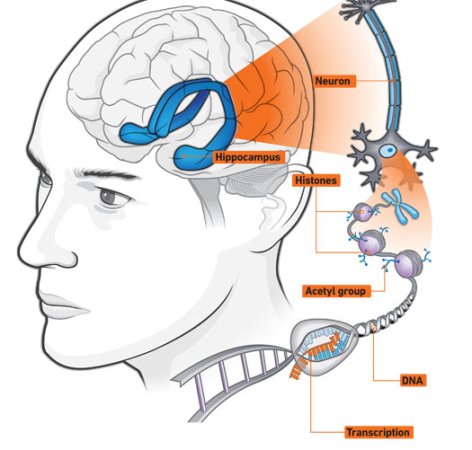

Adding newborn brain cells to an aging brain can improve memory and decision-making, according to a new study. Adult mice with newborn neurons in the hippocampus, which governs memory and learning, were better able to distinguish between similar events and make better-informed choices. Combined with exercise over a period of time, adding new neurons even had anti-depressant effects, the study says.
Researchers at Columbia University engineered mice to produce a surplus of new neurons in the hippocampus. They found the mice were superb at learning to discriminate between experiences, which typically gets harder with age and with some anxiety disorders. Specifically, the mice were better able to differentiate between a chamber where they got a foot shock and a similar-looking chamber where they were safe.
Adult brains make new neurons all the time, a process called neurogenesis, but many of them don’t survive; certain diseases, like Alzheimer’s, inhibit their growth and function. Neuron creation can impact moods and learning abilities, so drugs that can boost their creation could be useful treatments for depression, anxiety and memory problems.
To enhance the mice brains, researchers led by Columbia neuroscience and pharmacology professor René Hen and postgraduate researcher Amar Sahay turned off a gene that kills new neurons in the adult brain, giving the mice a proliferation of new brain cells. This led to improved pattern separation, like distinguishing between the good and bad chambers. Treatments like this could be effective for things like post-traumatic stress disorder, Hen said in a Columbia news release — PTSD patients experience fear and other emotions when they are reminded of a similar bad experience.
“Even though I may remember 9/11, when I see an airplane over New York City, I am able to recognize that it’s a different situation and process it accordingly, while someone in the same situation with PTSD may re-experience the traumatic memory of 9/11 and have a panic attack,” Hen said. Novel neurons could help the PTSD patient separate the events, Hen added.
The mice with enhanced neurogenesis abilities didn’t show any outward anti-anxiety behavior — like exploring potentially dangerous situations — until they got some exercise: four weeks of running on hamster wheels.
The research suggests that combined with exercise, drugs that allow improved neurogenesis could help improve cognitive function — an interesting treatment for anything from neurodegenerative disorders to simple anxiety.
[Eurekalert via Technology Review]





